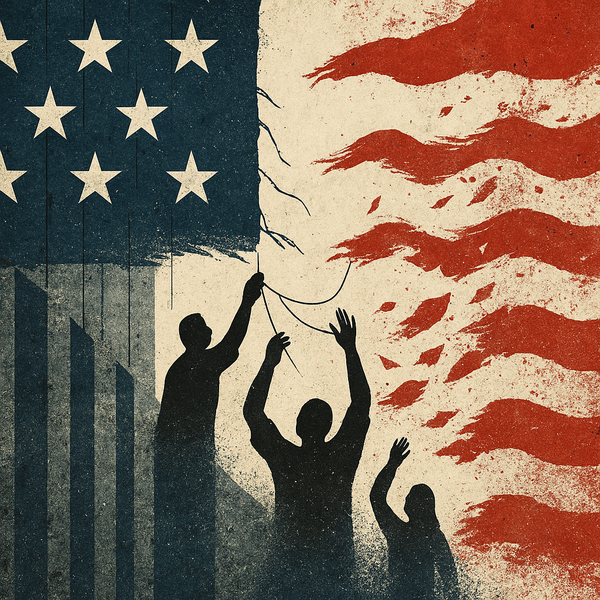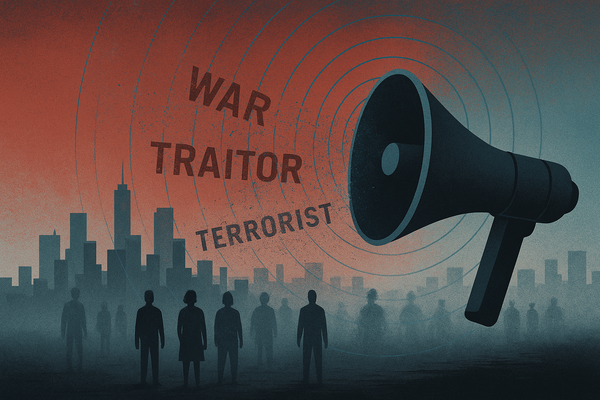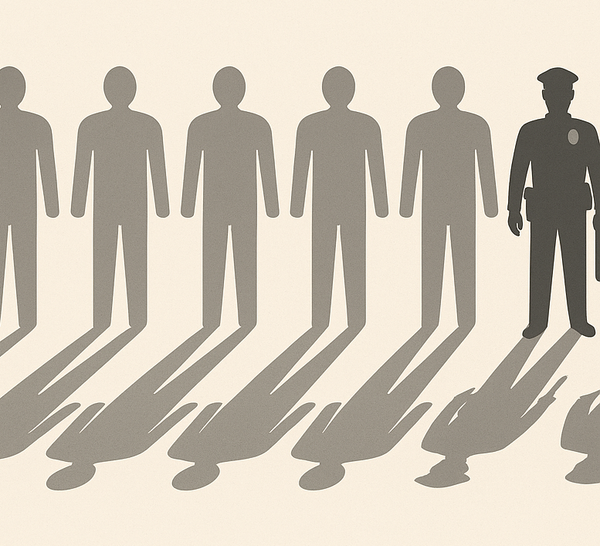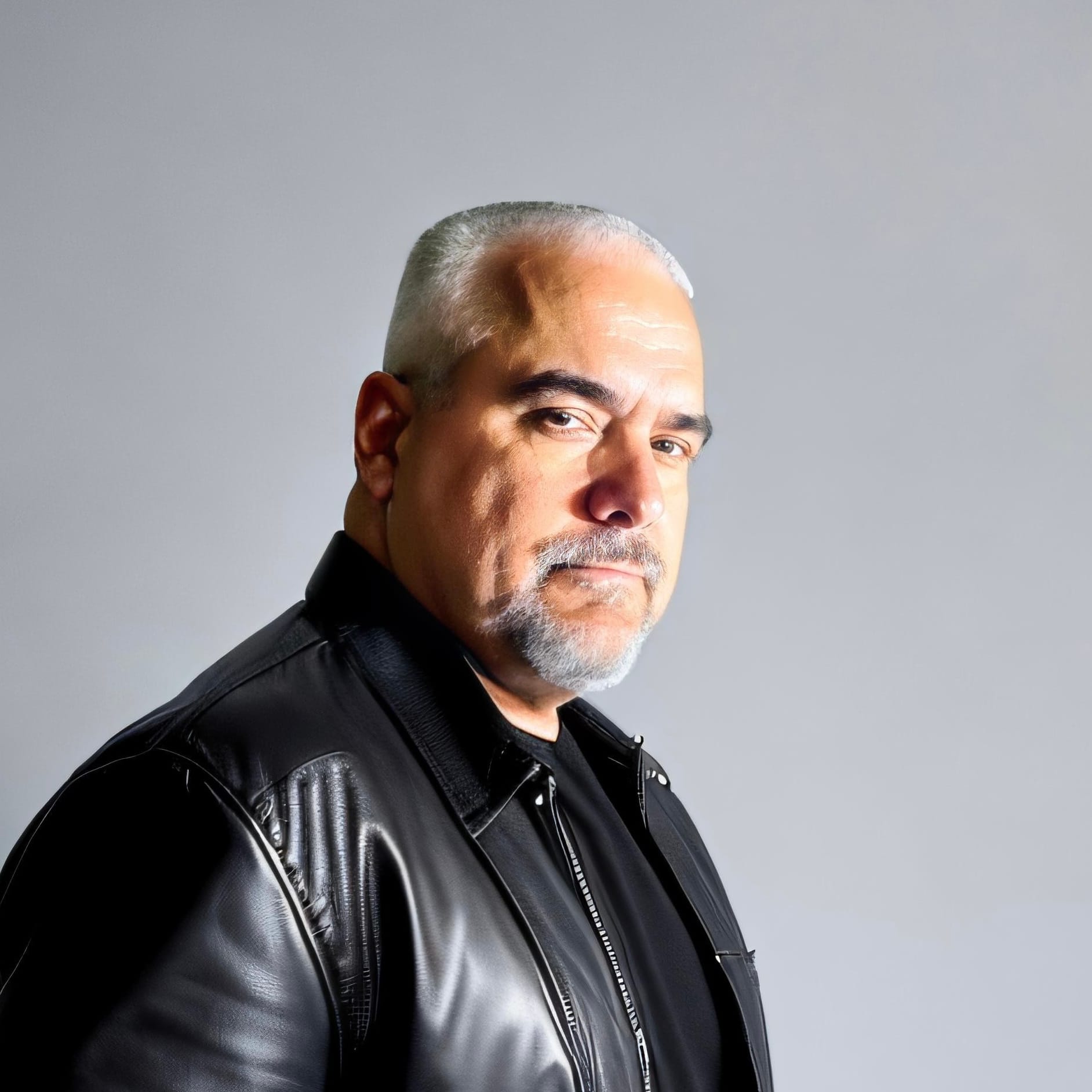
American politics is unraveling inside our closest circles. Families and friendships that survived disagreements for decades are now breaking apart. What once felt like arguments about taxes or foreign policy are now fights about reality itself.
The far right has become louder, comfortable speaking openly about racism, exclusion, and authoritarian “remakes” of our institutions. Democrats, for their part, have seemed adrift. Even with power, they have too often been reactive, offering little direction beyond “we are not Trump.” In the middle sit the exhausted citizens. They are weary of slogans, disillusioned by waste, and skeptical of institutions, but they have not given up on democracy altogether. This exhausted middle may hold the key to what comes next.
The Edges of the Divide
Over the last decade, rhetoric once considered fringe has gone mainstream. Racist, authoritarian, and exclusionary views are no longer whispered in the margins. They are broadcast proudly at rallies, reinforced by media ecosystems, and normalized by leaders who thrive on division.
The other side has not met that challenge with clarity. Democrats, as individuals, are frustrated because their party has felt like driftwood on the ocean—defensive, directionless, and unconvincing even in power. Even during Biden’s presidency, there was little sense of forward vision, no clear rallying point beyond opposition to Trump. That vacuum has left millions hungry for leadership but skeptical of what either party can deliver.
Inside that frustration lies opportunity. Instead of dictating solutions, citizens should be invited to crowd-source the next chapter. Some issues will remain flashpoints, such as how to protect transgender rights while addressing questions around sports - but difficult conversations are the work of democracy. The task is not to enforce a script from the edges. It is to invite the exhausted middle into shaping what comes next.
Why This Matters
Project 2025 offers the clearest picture of what “Make America Great Again” actually means. It is not a menu where supporters can pick the parts they like and ignore the rest. It is a comprehensive blueprint: roll back civil rights, dismantle worker protections, and replace impartial governance with loyalty tests. To embrace MAGA is to embrace the entire package.
That reality must be called out. For years, white supremacy and racist language carried stigma. People hid those beliefs in private. Today, some wear them openly as political identity. If that is where they stand, then they must own it without euphemism. No patriotic wrapping, no “just asking questions.” The social filter that once treated racism and authoritarianism as unacceptable must be rebuilt, and it must be rebuilt in public.
A Broken Trust Economy
Democracy depends on trust: trust that elections are legitimate, trust that facts can be verified, and trust that disagreement still happens within a shared reality. That trust is collapsing. More than half of Americans now say they struggle to distinguish real news from fake.
The breakdown shows up in everyday interactions. Present a fact and it is dismissed as “fake news.” Provide a source and it is waved off as biased. That response is not debate. It is an outright refusal to inhabit the same reality. Once that refusal is made, evidence itself loses meaning.
Authoritarians know this strategy well. The Soviet Union used to flood the zone with propaganda until no one could separate truth from lies. Today, the flood in America comes not just from governments but from our own social media feeds, influencers, and cable networks.
How We Build a Shared Reality
Rebuilding trust does not mean everyone agrees. It means evidence is at least admissible again. That requires three deliberate moves:
- Re-center the referees. Independent courts, journalists, and fact-checkers are not partisan weapons. They are referees of reality. Efforts like Project 2025 that aim to strip independence from civil servants are not about efficiency. They are about silencing referees.
- Make truth social again. Communities—schools, churches, workplaces—once enforced a baseline of shame around racist or conspiratorial speech. Today those filters are gone. We need civic institutions to reassert that certain lines are not normal or acceptable.
- Invite joint inquiry. Telling someone “here are the facts” often triggers defensiveness. Inviting them to check facts together—“let’s pull this up and see”—can shift the posture from combat to co-discovery. Not always, but often enough to keep a conversation alive.
Truth will not be restored by humiliating opponents in debates. It will be restored by making verification and evidence a collective responsibility again.
Analysis: Who to Ignore, Who to Engage
The civic landscape can be divided into three circles:
- The Fringe. Authoritarians, anarchists, and extremists exist on both the far right and far left. They are openly comfortable with violence and contempt for democratic norms. They cannot be persuaded. They must be ostracized, stripped of legitimacy, and kept at the margins.
- The Exhausted. The most important group. On the right, they see real government waste and lack of accountability. On the left, they see programs fail without transparency or iteration. They are tired of slogans but not ready to abandon democracy. They must be engaged not as passive spectators but as co-authors of what comes next.
- The Engaged. Civic leaders, activists, and organizers who still fight to preserve institutions. Their energy matters, but they cannot succeed without the exhausted middle joining in.
We have seen what “burn it down” politics produces. DOGE was a disaster. The alternative is renovation: difficult, deliberate, imperfect, but ultimately repair that preserves the democratic house instead of torching it.
Lessons From History and Failure
If history is written by the victors, then America must decide what story it wants to tell. That requires honesty about our failures. Germany’s reckoning with its past shows that a nation can confront uncomfortable truths and emerge stronger.
We should adopt a similar mindset. Everyone deserves a fair shot, but programs will sometimes fail. That is not reason for denial. It is reason for iteration. In the private sector, Google’s culture encourages teams to fail fast and celebrate the lessons. Imagine if the public sector approached failure with the same transparency: admit shortcomings quickly, adapt openly, and build trust through honesty.
Crowd-sourcing democracy does not mean chaos. It means structured discomfort. It means citizens helping shape solutions, accepting compromise, and holding leaders accountable to the vision we build together.
- Dwight D. Eisenhower
Takeaway
The fight for America’s future will not be won by dragging the fringes back toward the center. It will be won by inviting the exhausted middle to co-create what comes next - and by restoring trust in facts as a shared framework.
Democracy is fragile, but it endures when the people choose to defend it together.
Share this article
Written by
Join the conversation

1984 Wasn’t a Warning, It Was a Blueprint
Ten Lessons From Orwell That America 2025 Is Failing to Learn War Is Peace. Freedom Is Slavery. Ignorance Is Strength. George Orwell’s slogans weren’t meant as prophecy. They were meant as diagnosis: how fragile truth becomes when power is unchecked. In 2025, the United States is watching an
When Democracy Fails: What the DNC Still Does Not Understand
On The Weekly Show with Jon Stewart, Democratic Party Chair Ken Martin was handed an opportunity: lay out what Democrats stand for heading into 2026. Instead, what viewers saw was the emptiness of consultant-speak and the absence of a vision.
The Deportation Machine We’re Building
ICE’s civilian recruitment and expanding detention echo the patterns of history—and offer a warning we can’t ignore. We are not just building detention centers. We are building a machine of power that will not sit idle. Ordinary Men, Extraordinary Lessons In 1992, historian Christopher Browning published Ordinary


